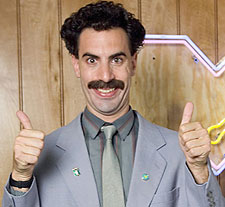
Courtesy Shutterstock
I start many of my conversations with the following: “I read an interesting article recently…” This week my twelve-year old daughter asked, “Dad, where do you read all these articles you’re talking about?”
Good question. In essence, she was asking how I stay informed and uncover a lot of interesting information and in-depth news. This is what I told her:
- I read three daily newspapers. They are: USA Today (for national news) and KSL and Daily Herald (for local news). I only scan the homepages and click on headlines that interest me. I sometimes skip weekends and weekdays on extra busy days. All told, I might spend 10-20 minutes reading these. I rarely read politics.
- I read Digg’s daily long reads. These are editor picks of some of the best long-form journalism and magazine articles on the web, from a variety of outlets. I stockpile them in several open tabs on my phone and read them throughout the week, spending a few hours doing so.
- I subscribe to weekly long read newsletters. They are the Weekly Top 5 Longreads and Longform’s Pick of The Week. Like Digg Longreads, I stockpile these and spend a few hours reading them each week.
On top of that, I read about 8-10 books a year, mostly non-fiction and biographies.
Fun fact: I used to spend a lot more time staying informed and reading dozens of websites and online newspapers in my twenties but have found since my thirties that the added distraction didn’t justify the amount of time I was spending. Since then, I’ve been a lot more productive and happy while still staying just as informed on the low-caloric, but nutrient-rich diet of the above.
Hope that helps.

I whole heartily agree with Confucius when he said, “The man who asks a question is a fool for a minute; the man who does not ask is a fool for life.”
Because of this, I’m always asking new questions of everyone I encounter in an effort to learn from them. Long-time family and friends. Acquaintances. Complete strangers. Everybody!
When it comes to getting better answers (i.e. more lively conversations), there are few better ice-breaker questions than these:
- What do you like to do? (more fun than the default and boring “What do you do for work?”)
- What is it like to live there? (asked as as a follow up to “Where are you from?”)
- What are you excited about right now?
To adopt for people you now, just add “now” to the above and voila! Instant learning. When you feel ready, you can really dig deep with, “What are your guiding beliefs?”
Hat tip, Ahmed Arshad

Eric Scott
A pottery teacher split her class into two halves.
To the first half she said, “You will spend the semester studying pottery, planning, designing, and creating your perfect pot. At the end of the semester, there will be a competition to see whose pot is the best”.
To the other half she said, “You will spend your semester making lots of pots. Your grade will be based on the number of completed pots you finish. At the end of the semester, you’ll also have the opportunity to enter your best pot into a competition.”
The first half of the class threw themselves into their research, planning, and design. Then they set about creating their one, perfect pot for the competition.
The second half of the class immediately grabbed fistfulls of clay and started churning out pots. They made big ones, small ones, simple ones, and intricate ones. Their muscles ached for weeks as they gained the strength needed to throw so many pots.
At the end of class, both halves were invited to enter their most perfect pot into the competition. Once the votes were counted, all of the best pots came from the students that were tasked with quantity. The practice they gained made them significantly better potters than the planners on a quest for a single, perfect pot.—As told by Eric Scott
I know because it happened to me this week.
I was in the living room. My five year old was sitting beside her mother on the sofa. All of the sudden, I hear the former speaking in this foreign language. Not an idiom. Music notation! She was reading aloud music! Passing off her piano homework to her mother!
“My kid knows how to read music!!” I thought to myself. “Even I don’t know how to do that!!” (Yes, there were exclamation points after all of these sentences.)
I can only imagine what other things she’ll learn as she grows older — things I never did.
You have no idea how proud this makes me as a father. It makes me want to sing “We are the world” or something. What an awesome feeling.
MLIA
 I’m no fan of new year’s resolutions. I think individuals should resolve to improve on a daily, weekly, or monthly basis, not yearly. But I am big believer in learning from the previous year, which brings me to my list of top educational attainments and the last post of 2007.
I’m no fan of new year’s resolutions. I think individuals should resolve to improve on a daily, weekly, or monthly basis, not yearly. But I am big believer in learning from the previous year, which brings me to my list of top educational attainments and the last post of 2007.
- More really is merrier.
I’m the proud father of two girls instead of one as of October. Before the latest arrival (Hi, Maddie!), I errantly thought that two kids would double the parenting workload. In reality, it feels more like a 1.5 workload with a 2.5 return. Challenging, yes, but even more rewarding than I imagined. Continue reading…




 I’m no fan of new year’s resolutions. I think individuals should resolve to improve on a daily, weekly, or monthly basis, not yearly. But I am big believer in learning from the previous year, which brings me to my list of top educational attainments and the last post of 2007.
I’m no fan of new year’s resolutions. I think individuals should resolve to improve on a daily, weekly, or monthly basis, not yearly. But I am big believer in learning from the previous year, which brings me to my list of top educational attainments and the last post of 2007.